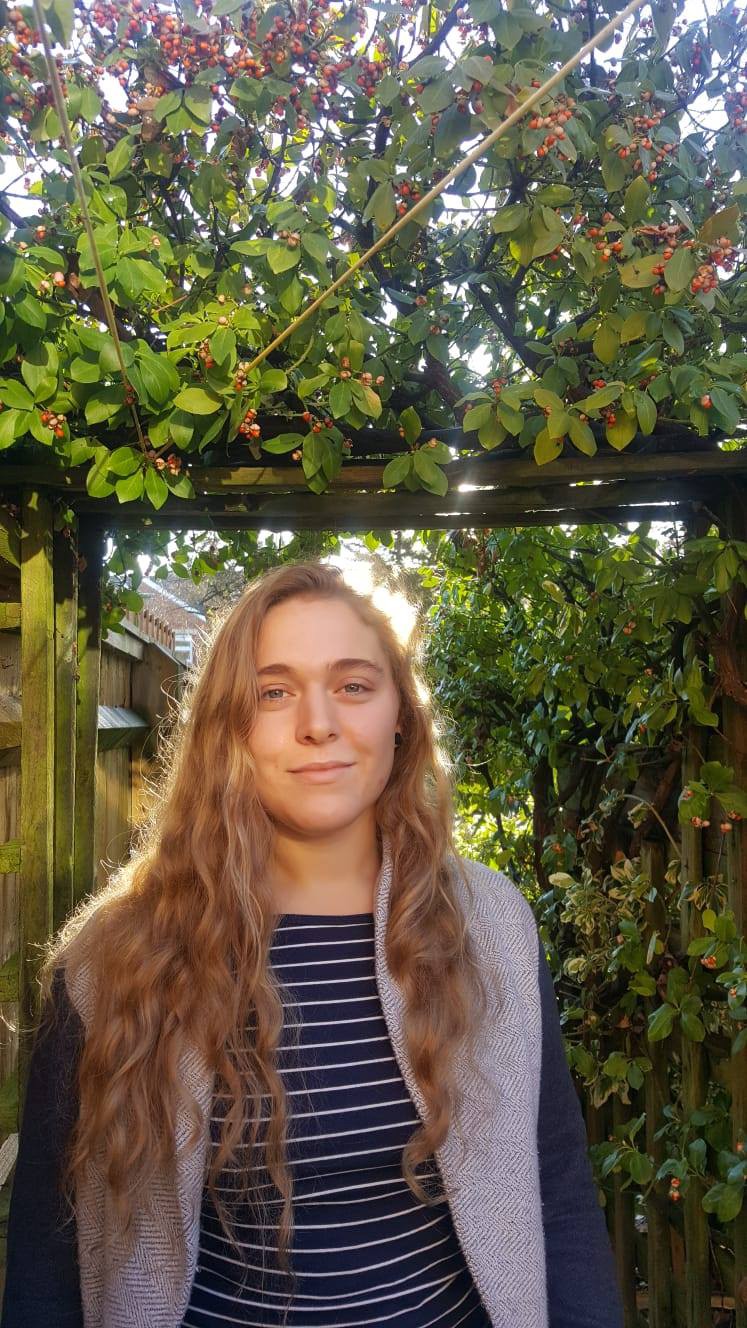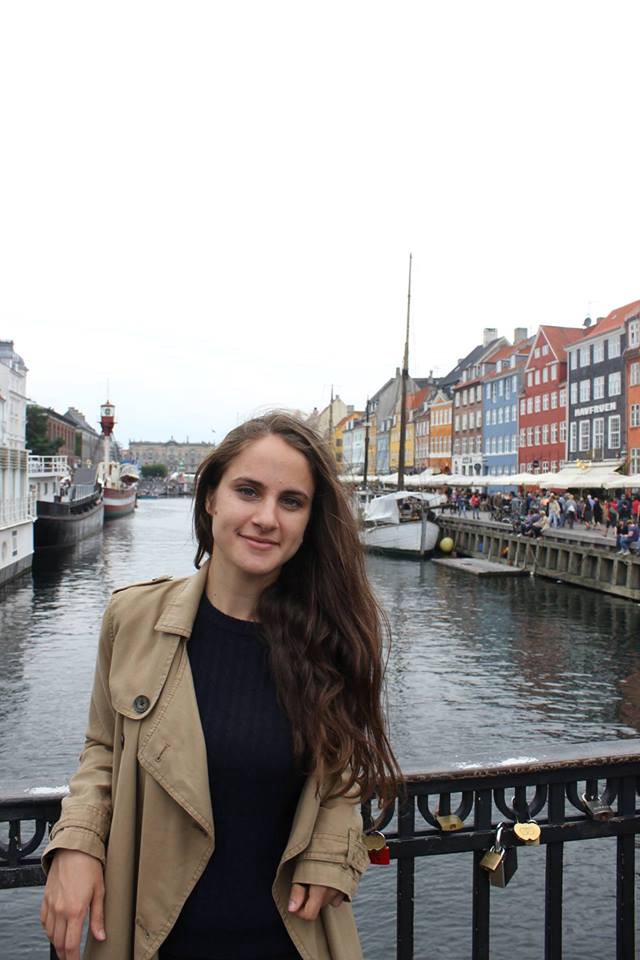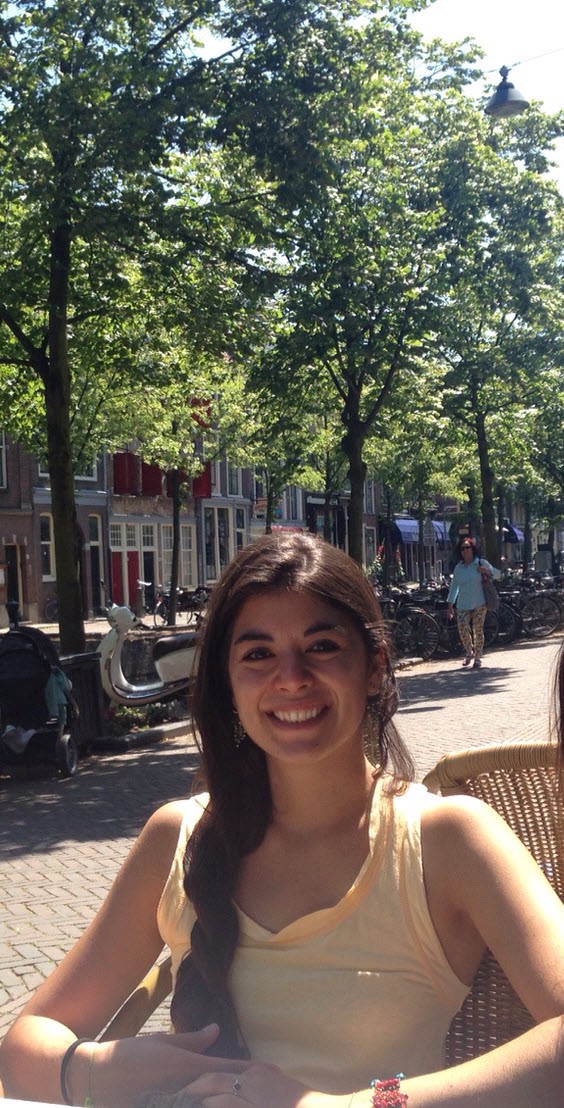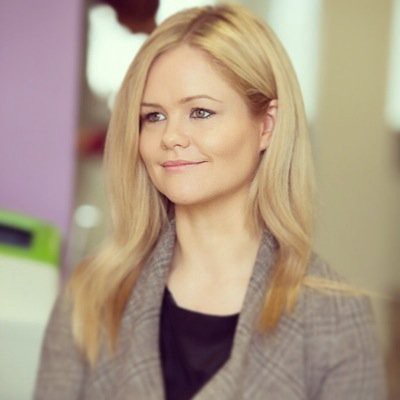Brits who Work with Bits
Produced by Elizabeth Smith.
Quick! Name 3 tech companies. Which ones come to mind? Chances are that they’re all American but surprisingly, the United States was not the birthplace of computing. Long before Steve Jobs’ garage, Google’s free food, or Mark Zuckerberg’s black hoodie, a British woman was contemplating the use of a “computing machine” to perform fast, accurate calculations.
Her name was Ada Lovelace. The nineteenth century mathematician and daughter of the esteemed poet Lord Byron is widely considered to be the first computer programmer. Lovelace was a progressive thinker who not only challenged Victorian gender roles, but also was the first to recognize the potential of computers beyond “number crunching” — envisioning a society in which machines and individuals interacted.
A full century later, Alan Turing, an English mathematician, defined the first models of a general-purpose computer (the Turing Machine) and artificial intelligence. Despite the revolutionary impact of his work, Turing’s accomplishments were not fully recognized for many decades due to his homosexuality, which at the time was considered to be a crime in the United Kingdom.
Although today, most of the people that we think of as pioneers in tech are American males, it’s worth celebrating the fact that two of the world’s first computer scientists were a British woman and homosexual man. In honor of Ada Lovelace’s December birthday, we traveled across “the pond” to explore the legacy of British scientists who paved the way for modern computing. We asked women who are currently studying or working in Great Britain why they chose to pursue tech here. Over the course of the month of December, we have been sharing the personal stories of female technologists who have made Great Britain their home and are proud to share the full compilation here.
Jaclyn Smith (she/her)
PhD Student in Computer Science, University of Oxford & Principal Engineer, Omics Data Automation, Inc.
“I designed and developed a genomic-based cohort system with a team at Omics Data Automation (ODA). While I was training a group on how to use the system, one of the trainees ran a search for patients who could benefit from a new heart disease medication, based on the presence of a single point mutation. Using the system, she identified seventeen patients that could benefit from the drug. Since I lost my father to heart disease when I was just four years old, this was a very rewarding moment for me.”
Agnieszka Madurska
Tech Lead/Manager Google UK
“Moving to a different country, where I studied and worked in a different culture and in a foreign language was one of the biggest challenges I’ve faced so far. I found that the key to overcoming the initial loneliness and culture shock was building a strong network of friends and support both at work and outside of work.
Most importantly, it was crucial not to pretend that everything was okay when it really wasn’t, and to reach out for help when I needed it the most. There’s a lot of stigma around mental health that as a society we should be fighting. It’s okay not to feel okay!”
Myroslava Dzikovska
Software Engineer, Google
“”I was a teenager in post-Soviet Ukraine with very limited access to computers, internet or money. When your family earns an equivalent of $20 a month but taking each standardized test required for entry costs $30 and a ticket to the US is $700, some ingenuity is required. It took a village: Soros foundation offered some scholarships; my mother took extra jobs; a cousin contributed study guides. I did a lot of self-study and found research projects and unpaid internships to get some experience on my CV.
Finding a paid job in Ukraine for me sadly didn’t work out. The same classmates who asked me for help with their CS assignments also said “No, you cannot work in a bank the way I do, it’s not a woman’s job”. This was an insurmountable obstacle for an introvert like me, with limited social skills. With that said, I managed to get through the university admissions process and got a scholarship to study in the US at the time when studying abroad was still very new and unusual in Ukraine.”
Clara Bayarri
Senior Software Engineer & Manager, Android, Google
“Before I joined Google, I met an amazing female researcher called Luz Rello, and we became very close friends. Her research was (and still is!) focused on helping children with learning disabilities, specifically Dyslexia. I was immediately impressed by the passion Luz pursued her work with and how she was making a difference, and I joined her in her road to erradicate Dyslexia. Together with her and Azuki, an illustrator, we built a mobile app that showcased language exercises Luz had created based on the analysis of dyslexic children’s spelling mistakes.
This was the first major app I ever built, and I had no idea how to even tackle the problem but somehow a few months later not only were we able to release it to the public, but we also ran a series of studies with schools which scientifically proved that Luz’s exercises worked and helped children overcome Dyslexia in a fun and interactive way. To me that was a life changing experience, seeing how my work could change someone else’s life for the better, and since then I’ve always tried to find things to work on that feel meaningful and affect users on a daily basis.”
Micaela Bester
Linguist, Google
“The biggest challenge I face as a woman in tech is imposter syndrome. Not coming from a computer science background, I’m especially sensitive to this. Sometimes I get little reminders, like a software engineer saying “Oh, you’re a linguist, not an engineer” and assuming I work as a translator; or comments that I dress too nicely for the office. It’s a challenge to remind myself constantly that I belong in this industry and that I have value to contribute here.”
Medha Atre
Senior Researcher, University of Oxford
“I grew up in a fairly progressive family background that did not deprive me of a quality education, but beyond a bachelor’s degree, the expectation was to settle down through marriage, take care of a “man’s home” and be content with it. I, however, wanted to pursue higher education. I wanted to actively participate in science and technology, and through that I also wanted to set a different example for impressionable women and men around me.
I faced quite a lot of struggle trying to balance social and familial expectations, and my own passions. I faced a lot of resistance for pursuing higher education. I had an idea of this impending struggle from a very early age, having observed the social fabric around me, so I was preparing to handle it mentally from 12–13 years old. My strategy was to be financially independent immediately after I am done with my basic graduation, so as to be able to make my own decisions and be responsible for their outcome myself. I think it panned out well for me.”
Laura Tomassetti
FX TD at MPC
“I am part of a team that creates high quality live action movies and cartoons. I work as part of a team on a long and complicated process that takes sometimes years, but what we create together gives a little escape to people’s mind. Kids will live numerous adventures through the big screen, and I help them imagine enchanted worlds by recreating them in computer graphics, with suspense, explosions, high quality shots and a lot of cool effects! I am proud of being part of something big, something that brings joy and a little bit of lightheartedness to others.”
Sian Story
Director, EMEA Legal at Sophos
“Balancing a demanding work schedule with a very young family is challenging. I really enjoy my career and get a lot of personal satisfaction from working, but on the flip side I want to spend as much time as I can with my children, who are 3 and 1 and an absolute joy. Getting us through the week can often be a full family effort and certainly doesn’t accommodate much else — work is my “me time”. I’ve become much better at asking for and accepting help than I was; it’s no longer a point of pride to be able to fly solo. I’m also kinder to myself when things don’t work as expected, and I make a point of celebrating small victories.”
Erin Hamalainen
Software Engineer at Google
“Being undervalued at work is an ongoing challenge that I have to face more often than I’d like. Luckily, at my first job in tech, I had a boss who recognized my value, which has made it easy for me to be 100% confident of my worth ever since. When someone is condescending towards me at work, I immediately let them know that what they just said was condescending, rude, and inappropriate, and I make their manager aware of the situation (and potentially HR too). What I don’t do is let it go. Because I don’t want to let the cycle continue, and I don’t want others, who may be less equipped than myself to deal with these situations, to encounter this.”
Clare Lyle
Graduate Student, University of Oxford
“Starting college was probably the most difficult transition of my life. I felt very alone and unsure of myself, and my self-doubt was compounded by the air of confidence many people around me exuded, which I mistook for competence. When acquaintances would offer me help with math and physics, I assumed it was because they understood them better than I did. They didn’t. It took me a while to figure that out though, and I became very anxious wondering how I could possibly stay afloat in a cut-throat university where everyone was clearly miles ahead of me because they were offering homework help. I think most people’s intentions in offering me “help” were well-meaning, but I do wonder how much their implicit biases were involved. During a chemistry tutorial, I explained a concept to a classmate, and he thanked me with: “I never thought a blonde girl would help me with my homework.” I didn’t place too much stock in the opinion of someone who didn’t understand the concept of electron orbitals, so the comment didn’t bother me too much. But it did bolster a broader concern that people would assume the color of my hair had any causal relationship with my intelligence. My approach to solving this was typical of a computer scientist: I studied, took my exams, then updated my beliefs about my abilities after seeing the data. Once our exam results came back, it became very clear that I should be the one offering tutoring services, and the homework help offers stopped.”
Christie Travers-Smith
EMEA Retail Partnerships Lead, Google
“Before joining Google, I led the China office for a UK consultancy. When I first arrived in Beijing, I realised that the classroom Chinese I had learned was not going to get me very far! I couldn’t understand people’s accents and many of the nuances of the language were lost on me. I spent the first two years taking Chinese lessons at 7am several times a week, so I could improve my Chinese before arriving at the office where I would try to engage in as many conversations as possible. Eventually my Chinese got to a level where I could run my business and even make a few (very bad) jokes.”
Virginia Falcón
Measurement Lead,Google
“I have had the misfortune of virtually seeing my country disappear over the course of my life. I’m Venezuelan, and ever since I can remember the country has been on a downward trajectory. When I was in college, there was intense political unrest and at many times I wondered if I’d be able to complete my degree. I have struggled most of my adult life between patriotism and an urge to both fight for what’s fair and look after my family.
I made the heartbreaking decision of leaving the country and building a life abroad. At some point, I came to accept that there’s only one life to live and that there were certain things I couldn’t change by just wanting to. So I focused on the things I could change: providing for my family, building a career, raising children that would stand up for what’s right. I’m hopeful, even if I’m outside the country, that I can use my voice to make a difference for the millions of Venezuelans suffering from oppression and hunger each day.”
Delfina Grossi
Regional Account Executive, Global Client and Agency Solutions, Google UK
“My background is atypical. Argentine and Italian, I was born in Geneva, I grew up between Switzerland, Belgium, Argentina, and Holland, and I studied in Brussels, Paris and Rome. After completing my first masters in Marketing and Strategy at University Paris IX Dauphine, I returned to Buenos Aires to explore and understand my identity. I reconnected with my origins, fell in love, and completed a second masters degree in Business & Technology at Universidad San Andrés, Buenos Aires, Argentina. I am now based in London. The UK is my seventh country of residence. Moving from country to country while progressing in my career, prioritizing my partners’ career, and maintaining our personal goals has been challenging. I was able to handle it by always being vocal, setting clear expectations and having transparent conversations both at work and with my family. Like Anaïs Nin the French-American essayist and novelist wrote: “The risk to remain tight in a bud was more painful than the risk it took to blossom.” I’m proud of having had the courage to take the leap and move from one country and one growth opportunity to the other.”
Klaudia Krawiecka
PhD Student, University of Oxford & President of Oxford Women in Computer Science Society
“When I was younger, I was often discouraged by others to study Computer Science. At that time, it was not a popular subject among women. Because of this, I have always felt obliged to fight for my position and prove at every step that I can achieve outstanding results.
This fight became exhausting. Sometimes I felt like I should have given up. Fortunately, I have always had the support of my family and my close friends. They gave me the strength to pursue my dreams and goals. Now, I am very proud to represent Oxford Women in Computer Science Society and work with all the amazing and inspiring women in Oxford.”
Natasha Yogananda Jeppu
PhD Student in Computer Science, University of Oxford
“I have always been someone to give into peer pressure. In my adolescence, I always felt that I wouldn’t be accepted or I would be treated differently if I didn’t follow the rest of the world. A big eye opener was something my father told me, “Don’t be the sheep, be the shepherd!” My father always urged me and younger brother to think outside the box, despite my dislike for the same. Today, I am proud to have taken the path less trodden. My current area of research, formal verification, is something I was not exposed to in my undergraduate curriculum. I was afraid to venture into this ‘new’ area because it wasn’t something my fellow classmates talked about or had ever even heard of. I took my first step into the field when my father asked me to design a simple logic for an autopilot mode transition system. I was very confident in my design, but when I saw it fail against tests I’d never even thought of trying, I realized the importance of verification — especially when it comes to safety critical systems. From then on I knew this is what I wanted to do. I haven’t looked back.”
Sofia Minano
PhD Student
“Lately, I have become more conscious of the resilience I’ve developed (and continue to develop) in the last 5–6 years. Since my first years in uni, I feel I have been acquiring a nice set of tools to deal with challenging situations, and that makes me quite proud. I think my MSc thesis was a bit of a turning point for this, especially the defence session: I was terrified about it so I prepared it very thoroughly. And eventually it went quite well! So much that I actually enjoyed the discussion! I was surprised by how a small change in my approach to the situation made the experience so much nicer. I think since then I’m more focused on enjoying the process, rather than on the results that are expected from me.”
Julia Wiedmann
PhD Student in Computer Science, University of Oxford
“I think my biggest challenge was moving from an undergraduate in business to a masters degree in Computer Science. I didn’t know anyone in Computer Science; all I knew was that I wanted to learn everything about it. In order to be eligible for the masters, I taught myself all the maths and programming required to get into a CS degree while wrapping up the last few months of my undergraduate. It was rough. I remember I had many exams and a dissertation to write, but still had to find the time to teach myself programming to convince the admissions team I was a worthy candidate. For the last few months of undergrad, I’d get up at 5:30 AM, go for a run, spend the day on coursework at the library until 6pm, rush home to eat, then study programming until I passed out at 10. Every single day, for several months. I was an absolute wreck by the end of it. I was so worried about putting my bachelors grades at stake for a masters program I might never be admitted to. But luckily it all went well; I came out top in my class and was accepted into the masters program. I will forever take great pride in being a computer scientist, because I worked so incredibly hard in order to become one.”
Laura Wheeler
Cloud Communications Manager, Google
One of the biggest challenges I have faced in my life was contracting Dengue Fever while backpacking during a gap year in Indonesia. Dengue fever is a viral disease which is transmitted by mosquitoes. I ended up in hospital severely ill with a high fever, delusions and unable to eat. When I think back to this experience, I’m not quite sure how I made it through. Handling the aftermath was the biggest struggle for me personally — facing up to my own mortality and trying to get my head around the fact that I was alive, when every year thousands of people die from this terrible virus. I was one of the fortunate ones. It’s given me such a positive perspective on life and taught me to appreciate how lucky I am!
Anita Woodruff
Software Engineer, Google
“I’d been determined to get into Oxford; as a straight-A student I was encouraged by my teachers to go for it. But I took one look at the mathematics entrance exam and decided I had no chance of getting in. So instead, I settled with Experimental Psychology; it sounded interesting, and although I wasn’t a fan of writing essays, I figured I’d learn to love it. That notion turned out to be naive; to cut a long story short, I ended up failing out of the degree. That felt bad enough on its own, but the worst part was the psychological effects of all the pressure to succeed I felt myself under.
The Christmas holidays after my first term were a nightmare: I bailed on a ski-trip I’d already paid for because I couldn’t get it together to pack in time, I stopped sleeping, and the scariest part was that I started having paranoid delusions… Even writing this down now makes me shudder and feel ashamed. I attribute those psychotic symptoms to the immense stress and chronic insomnia I was experiencing at the time.
I do still suffer on and off with depression, which can be debilitating at times — some days even getting out of bed is a struggle. But over the past two years I’ve started getting professional support from my doctor and psychotherapist. I found that mindfulness techniques are really helpful. My proudest day was the day I finally graduated, with a first-class honours degree in Computer Science and Math from the University of Bath. It was a long road getting there, especially having dropped out of my first degree, but I couldn’t wipe the smile off my face that day!”



















